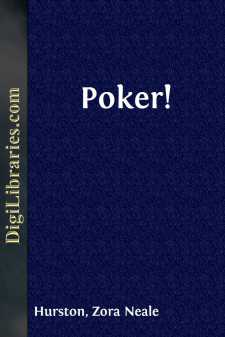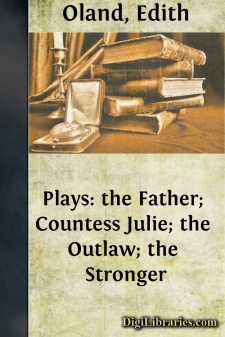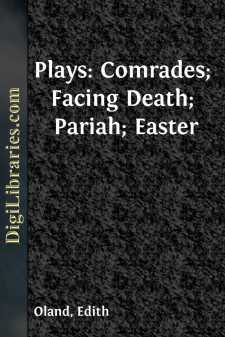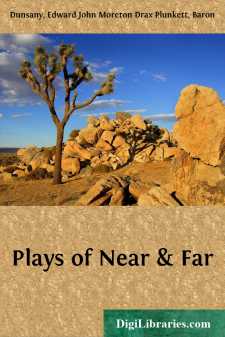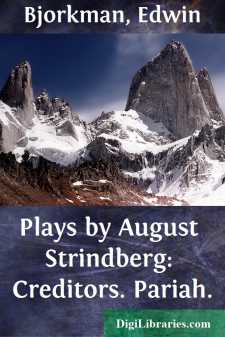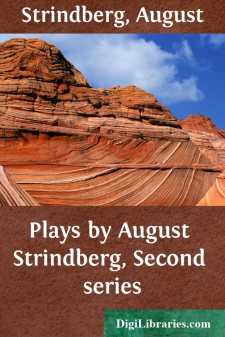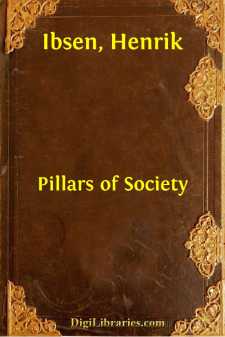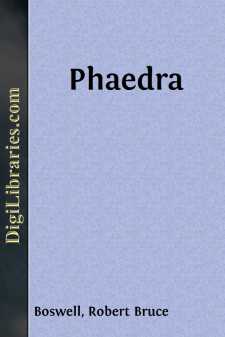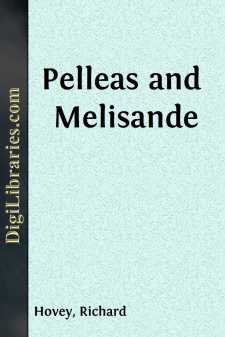Drama Books
Sort by:
SCENE— A shabby front room in a shotgun house. A door covered by dingy portieres upstage C. Small panel window in side Wall L. Plain centre table with chairs drawn up about it. Gaudy calendars on wall. Battered piano against wall R. Kerosene lamp with reflector against wall on either side of room. At rise of curtain NUNKIE is at piano playing…. Others at table with small stacks of chips before each...
more...
by:
Edith Oland
BIOGRAPHICAL NOTE "I tell you, you must have chaos in you, if you would givebirth to a dancing star."—Nietzsche. In Stockholm, living almost as a recluse, August Strindberg is dreaming life away. The dancing stars, sprung from the chaos of his being, shine with an ever-increasing refulgence from the high-arched dome of dramatic literature, but he no longer adds to their number. The...
more...
by:
Edith Oland
August Strindberg died at Stockholm On May 14, 1912, just ten days after the first of his plays given in English in the United States had completed a month's engagement. This play was "The Father," which, on April 9, 1912, was produced at the Berkeley Theatre in New York, the same little theatre that witnessed in 1894 the first performance in this country of Ibsen's "Ghosts."...
more...
PREFACE Believing plays to be solely for the stage, I have never before allowed any of mine to be printed until they had first faced from a stage the judgment of an audience, to see if they were entitled to be called plays at all. A successful production also has been sometimes a moral support to me when some critic has said, as for instance of "A Night at an Inn," that though it reads passably...
more...
by:
Edwin Bjorkman
This is one of the three plays which Strindberg placed at the head of his dramatic production during the middle ultra-naturalistic period, the other two being "The Father" and "Miss Julia." It is, in many ways, one of the strongest he ever produced. Its rarely excelled unity of construction, its tremendous dramatic tension, and its wonderful psychological analysis combine to make it a...
more...
THERE ARE CRIMES AND CRIMES INTRODUCTION Strindberg was fifty years old when he wrote "There Are Crimes and Crimes." In the same year, 1899, he produced three of his finest historical dramas: "The Saga of the Folkungs," "Gustavus Vasa," and "Eric XIV." Just before, he had finished "Advent," which he described as "A Mystery," and which was published...
more...
by:
Henrik Ibsen
ACT I. (SCENE.--A spacious garden-room in the BERNICKS' house. In the foreground on the left is a door leading to BERNICK'S business room; farther back in the same wall, a similar door. In the middle of the opposite wall is a large entrance-door, which leads to the street. The wall in the background is almost wholly composed of plate-glass; a door in it opens upon a broad flight of steps...
more...
INTRODUCTORY NOTE JEAN BAPTISTE RACINE, the younger contemporary of Corneille, and his rival for supremacy in French classical tragedy, was born at Ferte-Milon, December 21, 1639. He was educated at the College of Beauvais, at the great Jansenist school at Port Royal, and at the College d'Harcourt. He attracted notice by an ode written for the marriage of Louis XIV in 1660, and made his first...
more...
by:
Hannah More
ACT THE FIRST. SCENE I. A GOTHIC HALL. Enter Edric and Birtha. Bir.What may this mean? Earl Douglas has enjoin'd theeTo meet him here in private?Edr.Yes, my sister,And this injunction I have oft receiv'd;But when he comes, big with some painful secret,He starts, looks wild, then drops ambiguous hints,Frowns, hesitates, turns pale, and says 'twas nothing;Then feigns to smile, and by his...
more...
by:
Richard Hovey
SCENE I.—The gate of the castle. MAIDSERVANTS (within). Open the gate! Open the gate! PORTER (within). Who is there? Why do you come and wake me up? Go out by the little gates; there are enough of them!… A MAIDSERVANT (within). We have come to wash the threshold, the gate, and the steps; open, then! open! ANOTHER MAIDSERVANT (within). There are going to be great happenings! THIRD MAIDSERVANT...
more...


